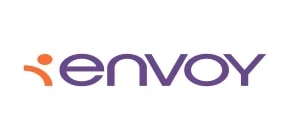October 16 Update: U.S. Citizenship & Immigration Services (USCIS) announced that premium processing fee increases for certain I-129 filings will go into effect on Monday, October 19, 2020. Premium processing requests for eligible I-129 petitions filed on or after October 19 will be subject to a $2,500 fee.
The eligible categories include:
- H-1B
- TN
- L-1
- O-1
- P-1
- E-2
H-2B and R visa petitions will be subject to a $1,500 premium processing fee.
Envoy customers with specific questions about this update should reach out to the legal team using the Envoy Communication Center.
A new appropriation bill to fund the federal government signed into law allows U.S. Citizenship & Immigration Services (USCIS) to raise the fee for premium processing and expand it to more immigration categories.
What Happened?
The new bill, H.R. 8337, expands premium processing to cover all employment-based nonimmigrant visas and green cards, as well as H-4 and Employment Authorization Documentation (EAD) applications. It also raises the cost of premium processing from $1,440 to $2,500 for all categories previously eligible for premium processing, except H-2B and R visas, which will cost $1,500.
Filing a visa application with premium processing requires USCIS to approve, issue a request for evidence or deny the visa petition within 15 calendar days.
For new categories now eligible for premium processing, the law establishes the following guidelines for costs and timeframes:
- For EB-1 green card applicants and EB-2 applicants seeking a National Interest Waiver, the cost will be set at no greater than $2,500, with a processing period of less than 45 days.
- For applicants changing their nonimmigrant status to F, J or M categories, as well as dependent applicants in the E, H, L, O, P or R categories, the cost is set at no greater than $1,750 with a processing period of less than 30 days.
- For applications for employment authorization, the fee is set at no greater than $1,500 with a processing period of less than 30 days.
The law also requires the Secretary of Homeland Security to develop a five-year plan to improve electronic filing, payment and communication, and improve processing times for immigration benefits.
What happens next?
The change is not effective immediately, and it is unclear how and when USCIS will implement these changes for cases that were previously not eligible for premium processing. USCIS has yet to set specific fees and timeframes for newly eligible categories.
How are Envoy Global and Global Immigration Associates (GIA) responding?
Envoy and GIA are monitoring the situation and will provide updates when USCIS publishes information on new procedures. Envoy customers should check the Announcements section of the platform for information on when it will be possible to add premium processing to a case and how to do so.
Originally published 2 October, 2020
The content of this article is intended to provide a general guide to the subject matter. Specialist advice should be sought about your specific circumstances.

